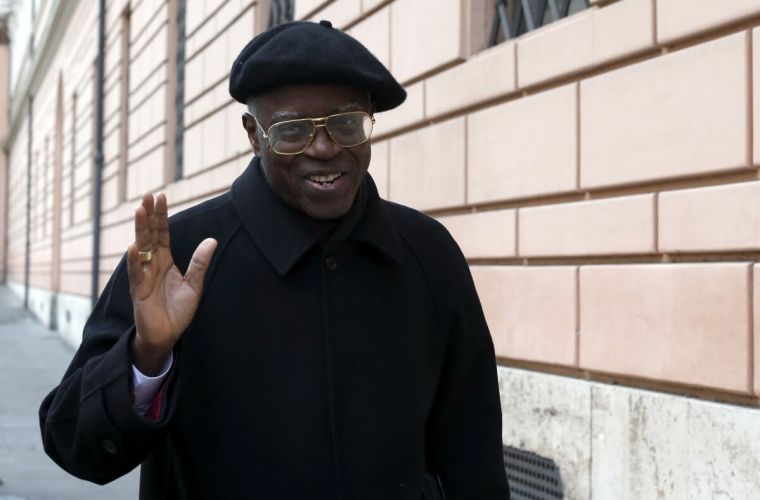Catholic Church facing severe crisis of faith, says African Cardinal

The Catholic Church is facing a severe crisis of faith, according to a senior prelate.
Cardinal Robert Sarah, aged 70, from Guinea, is particularly opposed to any relaxation of the strict rules around who may receive the sacrament of Holy Communion.
Many Catholics want liberalisation of the outright ban from Communion on anyone who has remarried after divorce without obtaining an annulment.
The Cardinal, a conservative who has been a critic of Islam and who believes abortion and homosexuality are demonic in origin, and who heads the Congregation for Divine Worship, believes the recent Synod on the Family has revealed a widespread illiteracy about the teachings of the Church.
He believes this illiteracy exists among clergy as well as laity, according to Sandro Magister
"With confusion rampant even among the clergy about Pope Francis' own stance regarding communion for those in grave sin, such as divorced and remarried couples, homosexual couples, and others, Cardinal Sarah's statements come at a critical moment," reports Lifesite News.
The French magazine L'Homme Nouveau has published a dossier of his concerns in which Cardinal Sarah says: "The entire Church has always firmly held that one may not receive communion with the knowledge of being in a state of mortal sin." He adds: "Not even a pope can dispense from such a divine law."
Cardinal Sarah, whose book God or Nothing made the case for tradition in the face of the current crisis of faith, responds in the dossier to some of the questions and criticisms he has received about the book.
Among other points, he notes that determining doctrine by the judgment of the majority of baptised Catholics, the laity, is wrong because the thought of the faithful does not represent the "position of the Church" if they laity disagree with the bishops.
But he is most exercised by Holy Communion, and reports one priest who told him that "thousands of priests do not hesitate to give communion to all".
Without a firm intention to cease committing sins such as adultery or fraud, such a Christian would remain in a state of mortal sin and would commit a grave sin by receiving communion, he warns.
This damning condemnation of adultery, and the subsequent humiliating exclusion from Holy Communion, applies even to a man or woman abandoned by an unfaithful spouse, who then finds love again and remarries in a civil ceremony.
Cardinal Sarah admits a person wrote to him about the case of a Catholic woman, divorced following domestic violence, who lives as "remarried" and takes part intensely in the life of her parish.
He says that such couples should be celibate and live as brother and sister in order to be absolved and receive Communion.
He writes: "The experience of numerous couples shows that this is often very difficult, but it is nonetheless possible with the help of God's grace, spiritual direction, and the frequent practice of the sacrament of reconciliation. In effect this latter permits one, if one falls, to start again more firmly on the right way, gradually progressing toward chastity."
Cardinal Sarah also addresses suggestions made about the "African family".
"In Western Africa, in spite of the massive presence of Islam, in the pure tradition of our ancestors marriage is monogamous and indissoluble."
The non-Christian African family could not be a model, "since it evidently suffers from the imprint of sin and also knows its difficulties". But in African culture in general, the family is still founded on heterosexual union and marriage is seen as being without divorce, in spite of polygamy. In Africa, family bonds are seen as sacred, he says.











